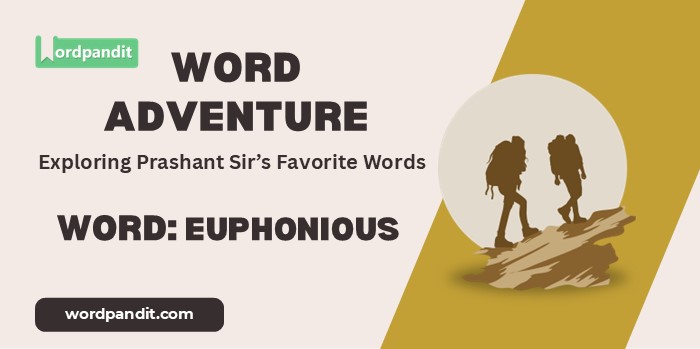Word Adventure: Euphonious
The Headline
“Euphonious: When Words Become Music to Your Ears”
The Scoop
In the symphony of language, some words and sounds strike our ears with particular beauty. ‘Euphonious’ is both the descriptor and embodiment of such acoustic pleasure – a word that practices what it preaches by being inherently pleasant to pronounce. Let’s explore this melodious term that celebrates the music in our everyday speech.
Let’s Break It Down
The Plot Thickens
The story of ‘euphonious’ begins in ancient Greece, where the prefix ‘eu-‘ (meaning “good” or “well”) combined with ‘phōnē’ (meaning “sound” or “voice”) to create a word family dedicated to pleasing sounds. This same Greek root gives us related words like ‘symphony’, ‘phonetics’, and ‘telephone’.
The concept of euphony has been crucial in poetry and literature throughout history. Writers and poets have long sought to create euphonious combinations of words that please the ear as much as their meanings please the mind. In music theory, euphony refers to harmonious combinations of sounds, contrasting with cacophony (harsh or discordant sounds).
Today, the appreciation of euphonious sounds extends beyond literature and music into fields like brand naming, where companies seek memorable, pleasant-sounding names for their products.
Word in the Wild
The Twist
Here’s something fascinating: What sounds euphonious in one language might sound jarring in another! Research in phonaesthetics (the study of beauty in sound) suggests that our perception of pleasant sounds is partly cultural and partly universal. While some sound combinations are widely considered euphonious across cultures – like the sound of flowing water or birdsong – the euphony of spoken language often depends on what we grew up hearing. It’s a reminder that even something as seemingly objective as pleasant sound has a cultural dimension!
Make It Stick
Euphonious: When your ears say “Ahhh!” and your brain says “Yes!”
Your Turn
What words or sounds do you find particularly euphonious? Perhaps it’s the name of a place, a favorite word in another language, or even the sound of a specific instrument? Share your personal examples of euphony in the comments below, and let’s explore how different sounds resonate with different people!
Down the Rabbit Hole
- Curious about other terms for pleasant sounds? Explore ‘mellifluous’, ‘dulcet’, or ‘sonorous’.
- Interested in the science of sound perception? Research phonaesthetics, psychoacoustics, or ASMR.
- Want to dive into literary sound devices? Look into alliteration, assonance, and onomatopoeia.
The Last Word
As we conclude our exploration of ‘euphonious’, I hope you’ve gained a new appreciation for the music in our everyday language. Whether in poetry, conversation, or the sounds of nature, euphonious elements add a layer of pleasure to our auditory experience. Until our next word adventure, this is Prashant from Wordpandit, encouraging you to tune your ears to the symphony of sounds around you!











